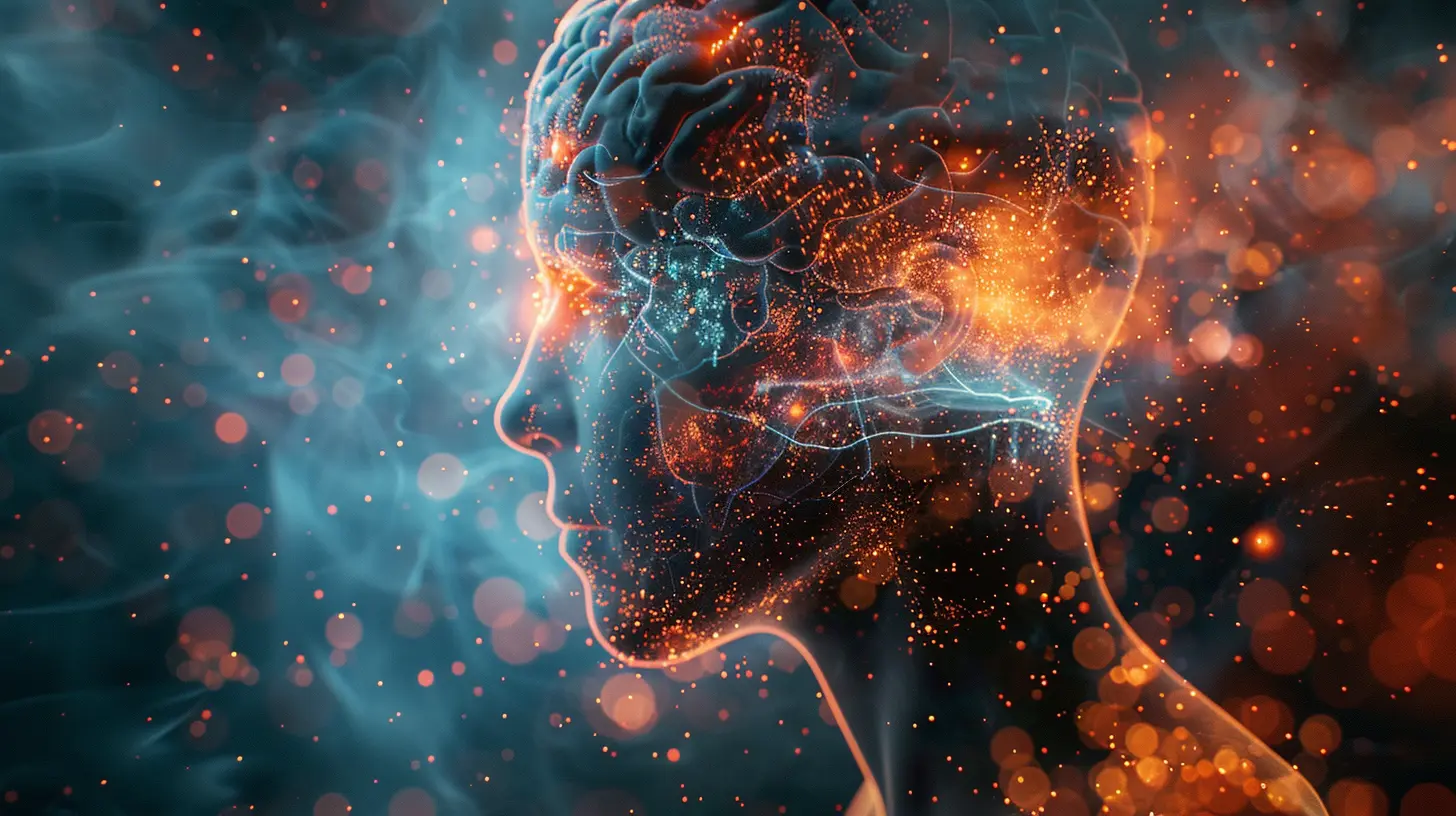The Theory of Cognitive Load: Understanding Its Impact on Learning
15 May 2025
Have you ever felt completely overwhelmed while trying to learn something new? Maybe you're staring at a dense textbook, struggling to absorb information, or feeling mentally exhausted after an intense lecture. If so, you've likely experienced cognitive load.
Cognitive load theory (CLT) explains how our brain processes and retains information—and why sometimes it just feels like too much. In this article, we'll break down this theory, why it matters for learning, and how we can use it to make learning easier and more effective.

What is Cognitive Load Theory?
Cognitive Load Theory, developed by John Sweller in the late 1980s, revolves around one key idea: our working memory has limits. Unlike a computer with massive storage, our brains can only hold and process a small amount of information at one time.Imagine juggling three balls effortlessly—now, try adding two more. Suddenly, you drop everything. The same thing happens when we overload our brain with too much information at once.
Sweller's theory helps us understand how to structure learning in a way that reduces unnecessary mental effort and enhances retention. By managing cognitive load, we can grasp information more effectively and avoid mental exhaustion.

The Three Types of Cognitive Load
Sweller identified three key types of cognitive load:1. Intrinsic Cognitive Load
This refers to the inherent difficulty of the material itself. Some topics are naturally more complex than others. For example, solving a simple math equation is far easier than understanding quantum mechanics.However, intrinsic load isn't necessarily a bad thing. Challenging tasks help us grow. The trick is to structure learning in a way that doesn't overwhelm the brain.
2. Extraneous Cognitive Load
This is the unnecessary mental effort caused by poor instruction or distractions. Ever tried learning from a cluttered PowerPoint, a monotonous lecturer, or a textbook packed with irrelevant details? That’s extraneous load.Reducing this kind of load is crucial for effective learning. Simplifying explanations, organizing content logically, and eliminating distractions can make a huge difference.
3. Germane Cognitive Load
This is the good kind of mental effort—the brain power used to actively process and store new information. When you connect new concepts to what you already know, you're engaging in germane load.The goal is to minimize extraneous load while maximizing germane load, ensuring that learners focus on meaningful connections rather than pointless confusion.

The Impact of Cognitive Load on Learning
Too much cognitive load can be disastrous for learning. If working memory is overwhelmed, learners struggle to retain information, leading to frustration and burnout.But it’s not all bad news! When managed correctly, cognitive load can actually enhance learning. The right balance encourages deep processing, making information stick longer. Think of it like lifting weights at the gym—you need enough challenge to build strength but not so much that you injure yourself.
Cognitive Overload: When Learning Becomes Too Much
When information exceeds our brain's capacity, we experience cognitive overload. Symptoms include:- Mental fatigue
- Struggling to focus
- Difficulty recalling information
- Frustration and discouragement
Ever tried cramming for an exam and felt like nothing was sinking in? That’s cognitive overload at play. Instead of absorbing knowledge, your brain is drowning in too much information.

How to Reduce Cognitive Load for Better Learning
Now that we know how cognitive load affects learning, how can we manage it? Here are some practical strategies:1. Break Information into Smaller Chunks
Ever heard of “chunking”? Instead of dumping a mountain of information onto your brain, break it down into smaller, manageable pieces. This is why phone numbers are grouped into sections—it’s easier to remember "555-123-4567" than "5551234567."In education, this means structuring lessons into bite-sized concepts rather than overwhelming students with too much at once.
2. Use Clear and Simple Language
Complicated explanations add to extraneous cognitive load. Avoid jargon, keep it clear, and get straight to the point. Teaching should feel more like a friendly chat than decoding an ancient manuscript.3. Leverage Visual Aids
Images, diagrams, and videos help lighten cognitive load by presenting information in an easy-to-digest format. A well-designed infographic can explain in seconds what takes paragraphs of text to describe.But be careful—cluttered visuals can do more harm than good. Keep it clean and relevant.
4. Encourage Active Learning
Passively reading or listening doesn’t engage the brain effectively. Instead, learners should interact with the material—through discussions, practice exercises, or teaching others. The more involved the brain is, the better the retention.5. Reduce Distractions
Ever tried studying in a noisy café with notifications buzzing on your phone? That’s a recipe for cognitive overload.Minimize distractions—both physically and mentally. A quiet space, turning off notifications, and focusing on one task at a time can help optimize learning.
6. Connect New Knowledge to Existing Knowledge
Our brains love making connections. Instead of memorizing random facts, relate new information to things you already know. Think of it like hanging a new coat on an existing hook—much easier than trying to balance it in midair.7. Practice and Repetition
Repetition strengthens memory. But instead of mindless repetition, aim for spaced repetition—reviewing information at intervals over time. This helps cement knowledge without overwhelming your brain all at once.Cognitive Load and Modern Learning Environments
In today’s digital world, cognitive load is more relevant than ever. With endless information at our fingertips, it’s easy to get overwhelmed.Online courses, e-learning platforms, and virtual classrooms must consider cognitive load when designing materials. Poorly designed lessons—filled with too much text, confusing layouts, or unnecessary details—can make online learning exhausting.
A well-structured course, on the other hand, can enhance learning by using clear explanations, interactive content, and logical progression.
Final Thoughts
Cognitive load theory isn’t just an academic concept—it’s a game-changer for how we learn and teach. Whether you’re a student, teacher, or lifelong learner, understanding and managing cognitive load can make information easier to grasp and retain.At the end of the day, learning shouldn’t feel like an uphill battle. By structuring knowledge in a way our brains naturally process, we can turn frustration into mastery—and that’s a win for everyone.
all images in this post were generated using AI tools
Category:
Psychological TheoriesAuthor:

Paulina Sanders
Discussion
rate this article
3 comments
Dominique Strickland
Great insights on learning!
May 20, 2025 at 1:40 PM

Paulina Sanders
Thank you! I'm glad you found the insights valuable.
Zylith Walker
Great insights on cognitive load's influence on effective learning!
May 17, 2025 at 3:49 AM

Paulina Sanders
Thank you! I'm glad you found the insights valuable.
Selah McQuiston
Cognitive load theory highlights the importance of manageable learning experiences. By optimizing our mental resources, we empower ourselves to absorb knowledge more effectively and joyfully!
May 16, 2025 at 2:36 AM

Paulina Sanders
Thank you for highlighting the key benefits of cognitive load theory! Optimizing learning experiences is indeed essential for enhancing knowledge absorption and enjoyment.



